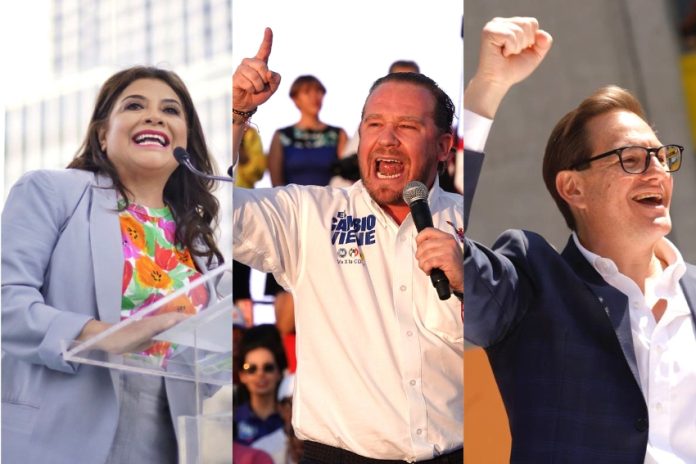Around 20,000 municipal, state and federal positions will be up for grabs in Mexico’s biggest-ever elections on June 2.
Excluding the presidency, the biggest single prize on offer is considered by many to be the mayorship of Mexico City, the national capital and the country’s largest city.
Mexico City has state-like status, and therefore the power of its mayor (jefe/jefa de gobierno in Spanish) is akin to that of a governor.
In 2024, one woman and two men will contest the mayoral election in the capital. The winner will occupy a position previously held by President Andrés Manuel López Obrador (2000-05), former foreign affairs minister Marcelo Ebrard (2006-12) and presidential aspirant Claudia Sheinbaum (2018-23), among other well-known politicians.
Here is a guide to this year’s mayoral race in Mexico City, where on June 2 citizens will also elect mayors in each of the capital’s 16 alcaldías (districts or boroughs) as well as 66 local lawmakers.
Mexico City’s 3 mayoral hopefuls
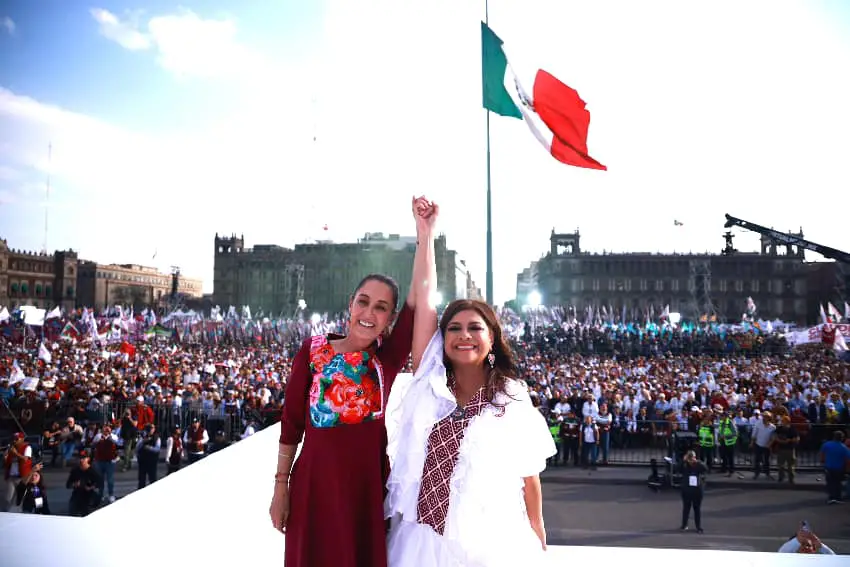
Clara Brugada, candidate for a coalition made up of the National Regeneration Movement (Morena), the Labor Party (PT) and the Ecological Green Party of Mexico (PVEM)
Brugada, a 60-year-old former mayor of the Mexico City borough of Iztapalapa, is aiming to extend Morena’s rule in the capital from six years to 12.
Founded by López Obrador, the leftist Morena party took office in the capital for the first time in 2018 under the leadership of Sheinbaum. If Brugada wins on June 2, she will succeed Martí Batres, who took over from Sheinbaum when she left the mayorship to focus on winning Morena’s nomination for president.
Brugada, who was selected as Morena’s candidate in the capital despite finishing second in the party’s internal selection contest, is perhaps best known for her “utopia” community center projects in Iztapalapa, which provide free recreation and education opportunities in the disadvantaged borough. She has pledged to establish 100 additional “utopia” projects across the capital’s 15 other boroughs if she becomes mayor.
At an event at the National Auditorium on Sunday, Brugada outlined a range of other proposals for the government she would lead in Mexico City. Her plans in three key areas are detailed below. Unsurprisingly, she also committed to leading an honest and transparent government with zero tolerance of corruption.
Water
Brugada expressed confidence that Sheinbaum will be the next president of Mexico, and pledged to work with her and México state Governor Delfina Gómez to solve Mexico City’s water scarcity problem.
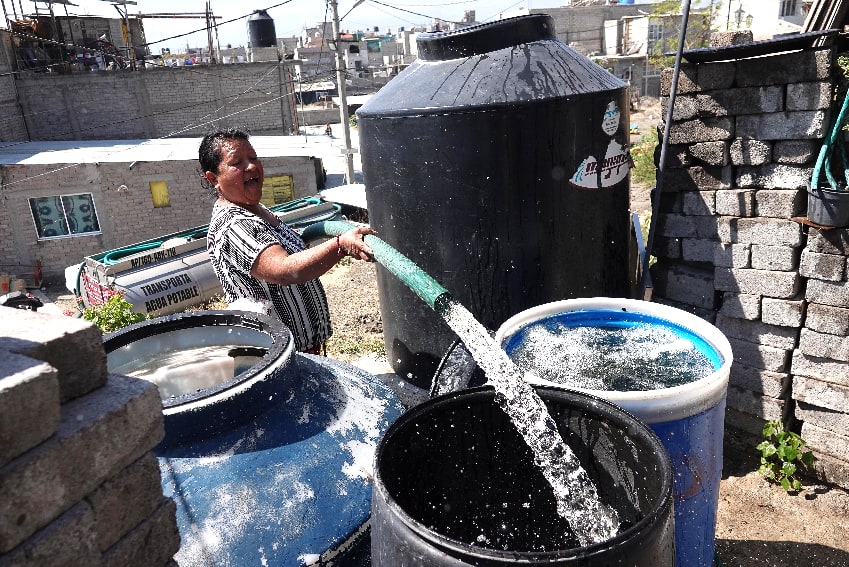
“I know the problem and we’re going to resolve it as a priority,” said the mayoral aspirant, who pledged to create a water-focused ministry, expand the capital’s rainwater harvesting program and establish a new program for the “rehabilitation” of 11 water sources, among other measures.
She said she would allocate “billions of pesos” to water projects in the capital, where many residents don’t have running water in their homes and depend on deliveries from trucks known as pipas.
Security
Brugada declared that she wants to make Mexico City “the most video-surveilled city” in the Americas with more cameras than New York. In addition to installing more security cameras, the mayoral aspirant said she would improve street lighting to make the capital “the most illuminated” city in Latin America.
Brugada asserted that not a lot needs to change in terms of security policy as crime has declined during the term of the current Morena government. However, she committed to strengthening the capital’s police force and equipping it with “the best and most modern technological resources available.”
Transport
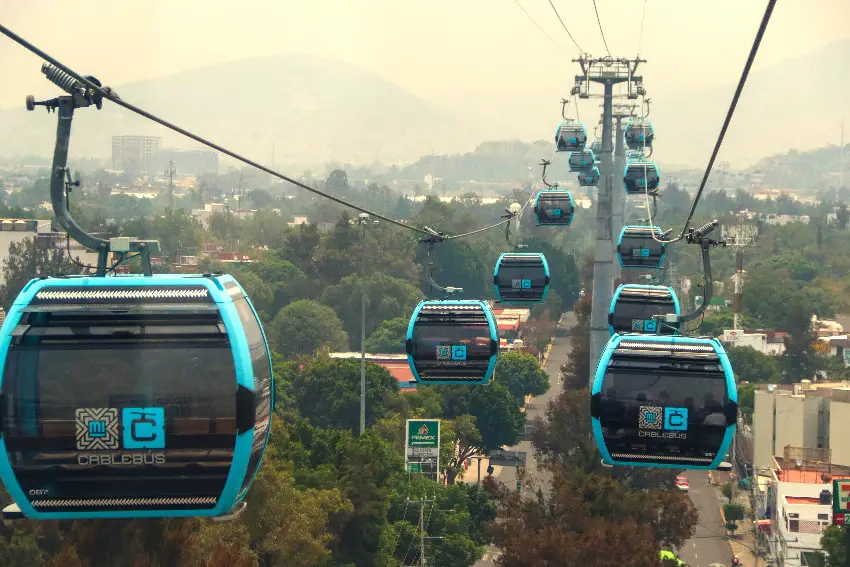
Brugada pledged to build five additional public transit cable car lines, open two new Metrobús lines and extend line 12 of the Mexico City metro to the Observatorio station, where the Mexico City terminus of the Mexico City-Toluca train line will be located.
Among other transport plans, she said that a government she leads would expand the capital’s bike-share program, called Ecobici.
Santiago Taboada, candidate for a coalition made up of the National Action Party (PAN), the Institutional Revolutionary Party (PRI) and the Democratic Revolution Party (PRD)
Polls shows that Taboada, a 38-year-old former mayor of the borough of Benito Juárez, is the only candidate with a legitimate chance of beating Brugada on June 2. A victory for the former Mexico City and federal lawmaker would return the PRD to power in the capital after an absence of six years.
Senator Miguel Ángel Mancera (2012-18), Ebrard and López Obrdor all governed the capital as representatives of the leftist PRD, as did Cuauhtémoc Cárdenas (1997-99), Mexico City’s first jefe de gobierno. (Mexico City was previously administered by regentes, or regents, who were appointed by the president of the day).
Neither the conservative PAN of the once-omnipotent PRI has governed the capital since the commencement of democratic mayoral elections in 1997.
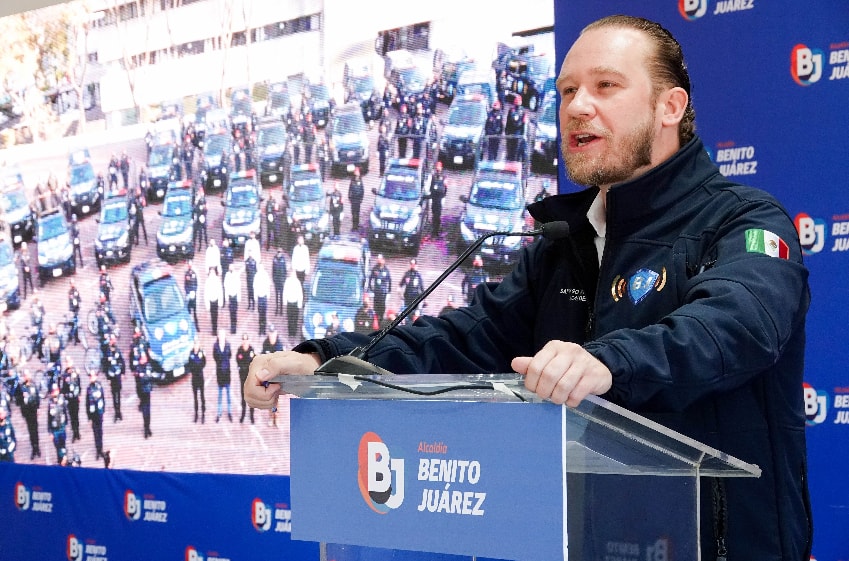
Taboada is not well known outside Mexico City, but did receive national attention in late 2021 when he spoke out to defend residents of Colonia del Valle after López Obrador derided the neighborhood as a bastion of “conservative thought” with an “aspirational middle class.”
“Mr. President, don’t be mistaken, this neighborhood, like many in Mexico City, is aspirational and [the residents] are aspirational; they aspire to have better urban services, greater security, better work, better schools and quality health care. That’s legitimate aspiration and as a government we are obliged to provide it,” responded Taboada, who at the time was mayor of Benito Juárez, where Colonia del Valle is located.
Accompanied by PAN-PRI-PRD presidential candidate Xóchitl Gálvez at an event at the capital’s Bicentennial Park on Saturday, Taboada outlined his vision for Mexico City, including his plans to address the water problem, improve security and expand the public transport network.
Water
In a nutshell, Taboada’s water plan consists of three proposed “actions.”
He said a government he leads would repair leaks — a major cause of water loss in Mexico — recycle more water and capture more rainwater.
Taboada charged that the current Mexico City government has neglected to address the water problem in the capital and is “losing water” as a result.
Security
The National Autonomous University-educated lawyer portrayed himself as the best person to improve the security situation in Mexico City, the country’s 16th most violent entity in 2023 in terms of total homicides.
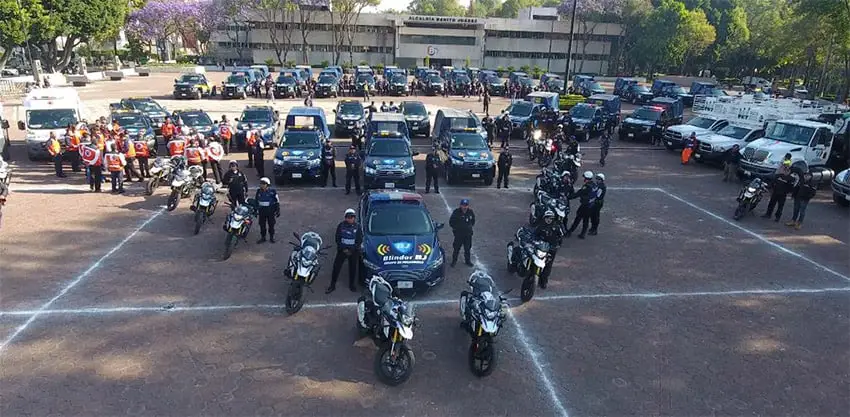
He pledged to implement across the capital the security strategy he used in Benito Juárez, a mainly middle-class borough where perceptions of insecurity among residents are lower than in any of the 90 cities across Mexico that are included in the National Survey of Urban Public Security, which was last conducted in late 2023.
That strategy is known as “BlindarBJ” or ShieldBJ (Benito Juárez) and involved, among other measures, increasing police numbers and ensuring a police presence in 28 different “quadrants” in the borough in order to reduce response times.
“In Benito Juárez we have the best [security] results,” Taboada said, adding that six of the city’s “riskiest” neighborhoods “where people suffer from insecurity the most” are located in Iztapalapa, where Bruagada was most recently mayor between 2018 and 2023.
“That’s not fair and we’re going to change that,” he declared.
Transport
Tabaoada also claimed that he is best placed to carry out the maintenance work required to ensure that the Mexico City metro functions safely and efficiently.
“Those who buried 26 people due to poor maintenance aren’t going to fix the metro,” he said, referring to the Line 12 accident that claimed that number of lives in May 2021 while Sheinbaum was mayor.
In addition to carrying out maintenance work, Taboada said that, as mayor, his government will extend the metro system so that people can reach 2026 FIFA men’s World Cup matches at the Estadio Azteca (Azteca Stadium) in southern Mexico City by train. The stadium is currently served by a station on the capital’s sole Tren Ligero (Light Rail) line, which connects to the metro system at the Tasqueña station.
Taboada also said he would add “cablebús” cable car lines, but only proposed three projects in as many boroughs, two fewer than Brugada.
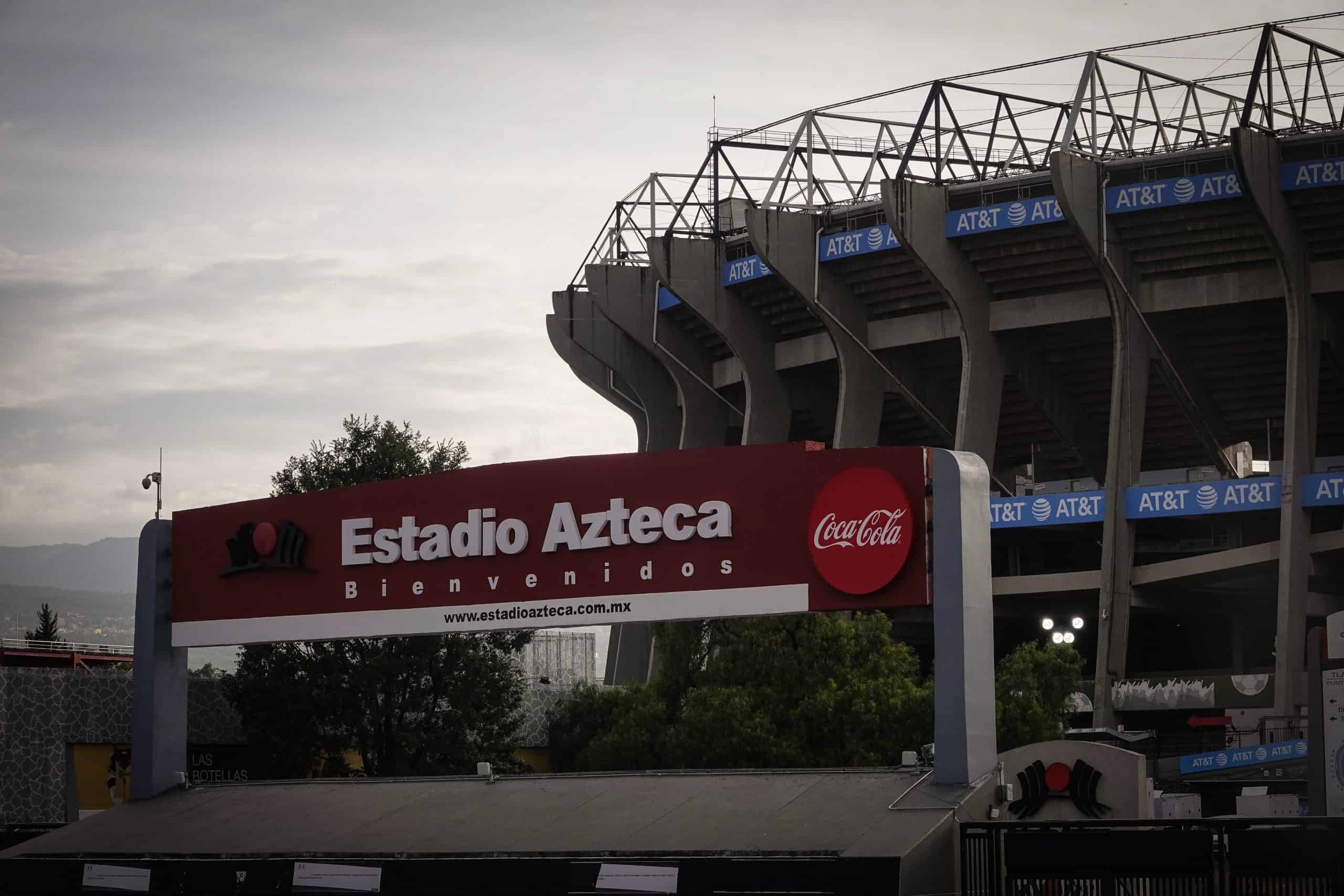
Salomón Chertorivski, candidate for the Citizens Movement (MC) party
The third candidate in the Mexico City mayoral contest is 49-year-old Salomón Chertorivski, a former federal lawmaker who served as health minister in the final year of the 2006-12 federal government led by ex-president Felipe Calderón.
The results of recent polls (see below) show that Chertorivski has scant support, and therefore he doesn’t currently appear to be a serious contender for the mayorship.
Still, he is aiming to portray himself as a viable alternative to the two main candidates — as MC presidential candidate Jorge Álvarez is attempting to do at the federal level — and has outlined a detailed water plan that includes a “Zero Leak” infrastructure renewal program and a campaign aimed at getting citizens to take better care of water resources.
Chertorivski, who has master’s degrees in both economics and public policy, said on Monday that over the course of the 12-week campaign, he will present his plans to address 12 different problems faced by Mexico City. He started with water on Monday, and will hold press conferences on each coming Monday prior to election day.
“We’ll speak in depth about each of what we consider to be the 12 biggest problems for our citizens and we will explain with complete detail what the solution [for each one] is,” Chertorivski said.
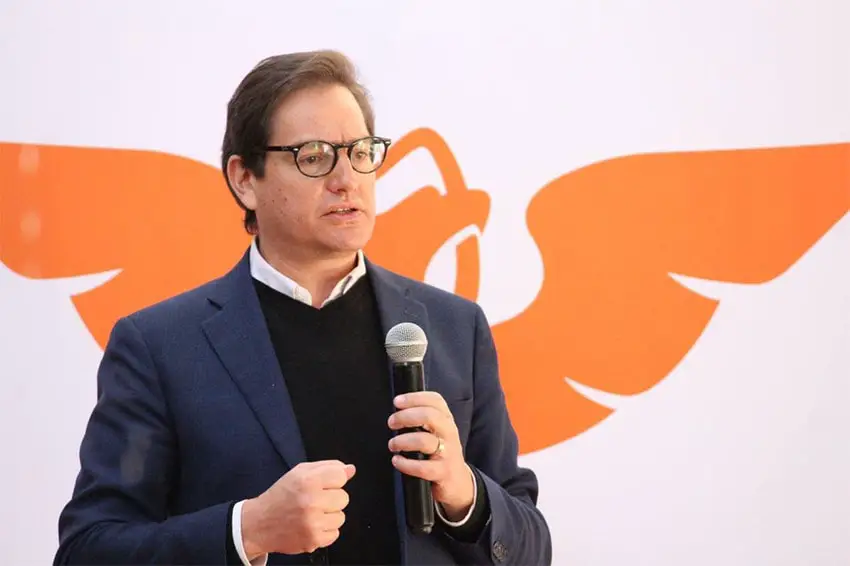
Who’s going to win?
Brugada is the clear favorite to become the next mayor of Mexico City, but a close race is not out of the question.
The results of a poll conducted in mid-February by the company Enkoll for the El País newspaper found 56% support for the Morena candidate, giving her a 16-point advantage over Taboada on 40%. Chertorivski was in a distant third place with just 4% support among just over 800 respondents. (Those who didn’t specify who they would vote for were excluded from the results.
A poll conducted by Polister this month yielded similar results.
However, the difference in the levels of support between Brugada and Taboada was just 3.6 points in a poll of 1,000 people conducted last week by Massive Caller. The Morena-PT-PVEM candidate had 41.1% support, while the PAN-PRI-PRD hopeful was the preferred option of 37.5% of those polled.
With just over 17% of respondents saying that they hadn’t yet made up their mind about who they would vote for on June 2, there is a chance for Taboada to make up the ground required to beat Brugada and become the next mayor of Mexico City, at least according to that poll.
As politicians sometimes like to say, the only poll that ultimately counts is the one on election day, when the millions of Mexico City residents who go out to vote will have the power to decide who and which party will govern the capital for the next six years.
With reports from El País, El Heraldo de México, Expansión and Reforma
